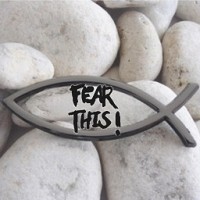Reminder: The Lenten devotional series entitled “Up to Jerusalem ” began on February 22, 2012 (Ash Wednesday) and will continue until Holy Saturday (the day before Easter). For Chapel viewers, you can still receive devotionals via email by entering your email address in the form provided on my Home Page. Respond to the verification email and you will be scheduled to receive the Lenten devotionals. If you’ve received this update, you’re automatically subscribed. Thank you!
If you would like to explore more about Jesus, consider attending Holy Week and Easter services at any of the churches which have participated in this Chapel ministry. Christ Church Lake Forest’s Easter services feature soloist John Easterlin, tenor with the Metropolitan Opera, and my home church, Christ Church Highland Park, will be celebrating a special Maundy Thursday service celebrating Christ Our Passover in which I will provide the historical perspective from the Old Testament.
Service Order for 9:00 AM
Sunday, March 25, 2012
Nemmers Family Chapel at Advocate Condell
Welcome: Barbara Shafer, Christ Church Highland Park
Scripture Reading: Psalm 146:1 Praise the LORD. Praise the LORD, O my soul. 2 I will praise the LORD all my life; I will sing praise to my God as long as I live. 3 Do not put your trust in princes, in mortal men, who cannot save. 4 When their spirit departs, they return to the ground; on that very day their plans come to nothing. 5 Blessed is he whose help is the God of Jacob, whose hope is in the LORD his God, 6 the Maker of heaven and earth, the sea, and everything in them– the LORD, who remains faithful forever. 7 He upholds the cause of the oppressed and gives food to the hungry. The LORD sets prisoners free, 8 the LORD gives sight to the blind, the LORD lifts up those who are bowed down, the LORD loves the righteous. 9 The LORD watches over the alien and sustains the fatherless and the widow, but he frustrates the ways of the wicked. 10 The LORD reigns forever, your God, O Zion, for all generations. Praise the LORD. (NIV )
Worship in the Word–Psalm 146: “Hallelujahs” by Barbara Shafer
Today in our ongoing series entitled “Our God of Hope, a Journey through the Psalms,” we come to Psalm 146. This belongs in the final group of 5 psalms, all of which have a focus on praise, literally Hallelujah. Psalm 146 begins and ends with the word Hallelujah! In this psalm, we see that happiness is found in the center of a life of hallelujahs.
Psalm 146:5 Blessed [Happy] is he whose help is the God of Jacob, whose hope is in the LORD his God.
Happiness is connected to centering our help and our hope in our hallelujahs.






